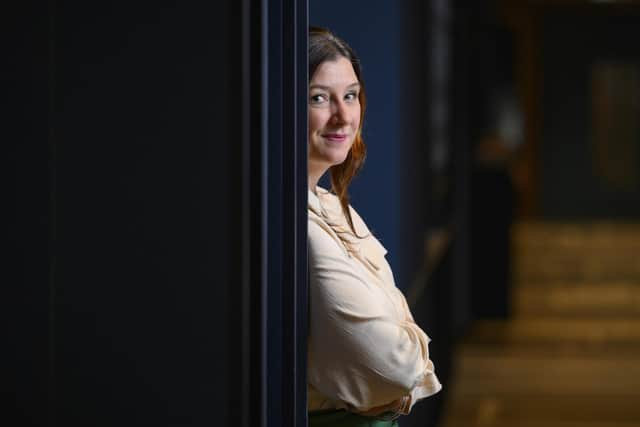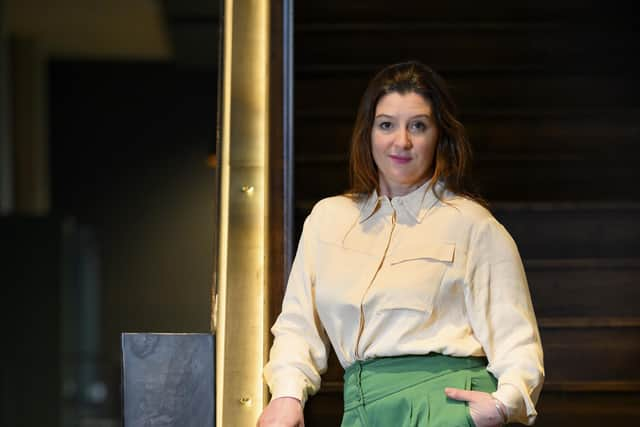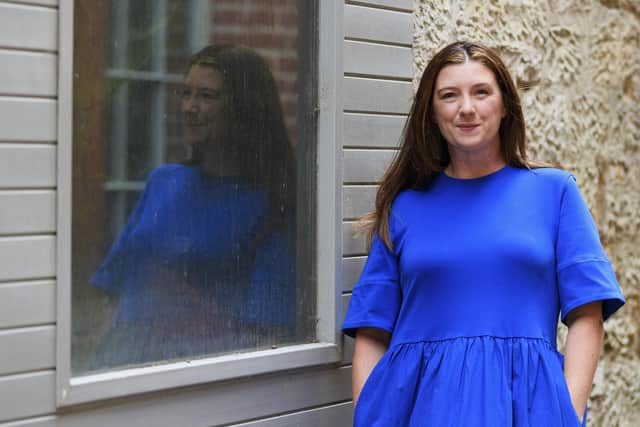SNP ministers urged to plug Edinburgh book festival funding gap amid warning over future
The Scottish Government is being urged to help fill a funding gap created by the Edinburgh International Book Festival’s decision to pull the plug on headline sponsor Baillie Gifford in the wake of protests over its links with the fossil fuel industry.
Director Jenny Niven revealed "multiple discussions" have been held with its key public funders, who also include Creative Scotland and Edinburgh City Council, over the potential impact of the loss of its biggest corporate backer.
Advertisement
Hide AdAdvertisement
Hide AdShe has warned the festival faces having to scale back from next year if it cannot find new support, but has pledged to do everything possible to avoid job losses.
The 41-year-old festival has around 30 year-round staff and employs more than 150 people each August.
Ms Niven has admitted the festival feared an eleventh hour collapse of its programme and having to refund thousands of tickets due to the mounting pressure on authors and writers to boycott the event since the launch of a “Fossil Free Books” campaign targeting Baillie Gifford-backed events last year.
She told The Scotsman she was hopeful the vast majority of its planned programme will now be able to go ahead as planned.
Ms Niven - who is in her first year in charge of the event - has pledged the festival will "find a way through" its funding crisis by securing new backing.


However she warned that it was "totally unrealistic" to expect the festival to continue on its current scale without corporate sponsorship.
She said there was a lack of understanding over how much arts festivals cost to put on and are paid for after more than a decade of real-terms cuts in public funding for Scottish culture.
Advertisement
Hide AdAdvertisement
Hide AdMs Niven said: “We’ve been speaking over the last week to the other festivals and our public funders, including at the highest level of the Scottish Government. We have had multiple discussions so far.
“We may have to recast and reshape the festival according to our means from next year.


“I really want to maintain our commitment to accessibility. I’ll do everything I can to prevent jobs being lost. It’s absolutely critical that we’re still able to bring in international writers.
“The championing and celebrating events like this needs to come with serious support in future. There is ample evidence of the value of the cultural sector. There needs to be collective problem solving now.”
The Fossil Free Books campaign has targeted Baillie Gifford-backed events since it emerged that the firm had billions invested in companies and climate activist Greta Thunberg pulled out of an appearance at last year’s Edinburgh book festival.
Fossil Free Books last month stepped up pressure on literary festivals to pull the plug on the firm unless it divested completely from the fossil fuel industry.


More than 800 writers and publishing industry workers have since backed an open letter warning literary festivals to expect “escalation, including the expansion of boycotts, increased author withdrawal of labour, and increased disruption.”
Advertisement
Hide AdAdvertisement
Hide AdAn official EIBF announcement on the end of its partnership with Baillie Gifford said its ability to deliver a safe and successful event this August had been “severely compromised” by the withdrawal of authors and threats of disruption.
Ms Niven said the festival had been left in a “really awful” position over its Bailie Gifford sponsorship, but needed to ensure a “viable” event went ahead this summer.
Ms Niven told The Scotsman: “Our hope is that by making this difficult decision that we will be able to welcome everyone back into the festival so that the programme and all the conversations it encourages can fully happen.
“We have a list of people who withdrew from the festival or we suspected were about to withdraw. We’re currently working through whether they’re coming back into the programme or not. But we should be in much better shape given the decision that was made last week.
“We were looking at a drip, drip, drip of people withdrawing over the summer months and then a potential collapse right before the festival.


"We were also talking to Edinburgh University, given that they have already had protests and we are using their buildings. Our festival was a sitting duck, in a way.
"It was not an easy decision to take last week and it’s devastating for us to be in this position now.
Advertisement
Hide AdAdvertisement
Hide Ad"I hope we can now get on with delivering the sort of festival we intended to deliver before this all landed on our doorstep.”
Ms Niven said the festival had “a lot of work to do” to mitigate the loss of its main sponsor.
She said: “We’ve got a fantastic offer, we’re a great organisation and we’re in a festival city in Edinburgh. I strongly feel that people really value this festival and want it to succeed. We will find a way through this and find other support, I hope.
"But we want to have a conversation with other parts of the cultural sector on how we work together to address the issues and tensions around what funding is suitable for the arts.
“I think this has revealed that a huge number of people have no idea how much these events actually cost and where that funding comes from.
“As public funding has been eroded over the last 10 years or so there’s been a shift for bigger events to become more reliant on sponsorship. Our funding model in Scotland now looks more like America, where the arts are almost entirely reliant on corporate sponsors.
“I think it’s totally unrealistic to expect that we’ll still have events of this scale and magnitude if people are not interested in having corporate sponsorship in the mix. We really need to talk about that as a sector and look at it collectively. There is a lot to lose at the moment.”
Advertisement
Hide AdAdvertisement
Hide AdCulture secretary Angus Robertson praised Baillie Gifford for its “vital role in supporting the arts in Scotland.”
He added: “I totally agree that the importance of the climate emergency, the appalling situation in Gaza as well as the invasion of Ukraine raise important ethical tests for funders. These, however, should be settled through dialogue and agreement which do not undermine the culture sector.”
Val Walker, the council’s culture convener, said: “I regret that the book festival has been put under such pressure that they have felt the only way they can deliver a safe and sustainable festival is to pull out of their sponsorship arrangements with Baillie Gifford. I recognise this decision will have been a challenge for them to make.
“We will continue to work with all of Edinburgh's festivals to ensure our world-renowned cultural sector is sustained and strengthened."
Comments
Want to join the conversation? Please or to comment on this article.